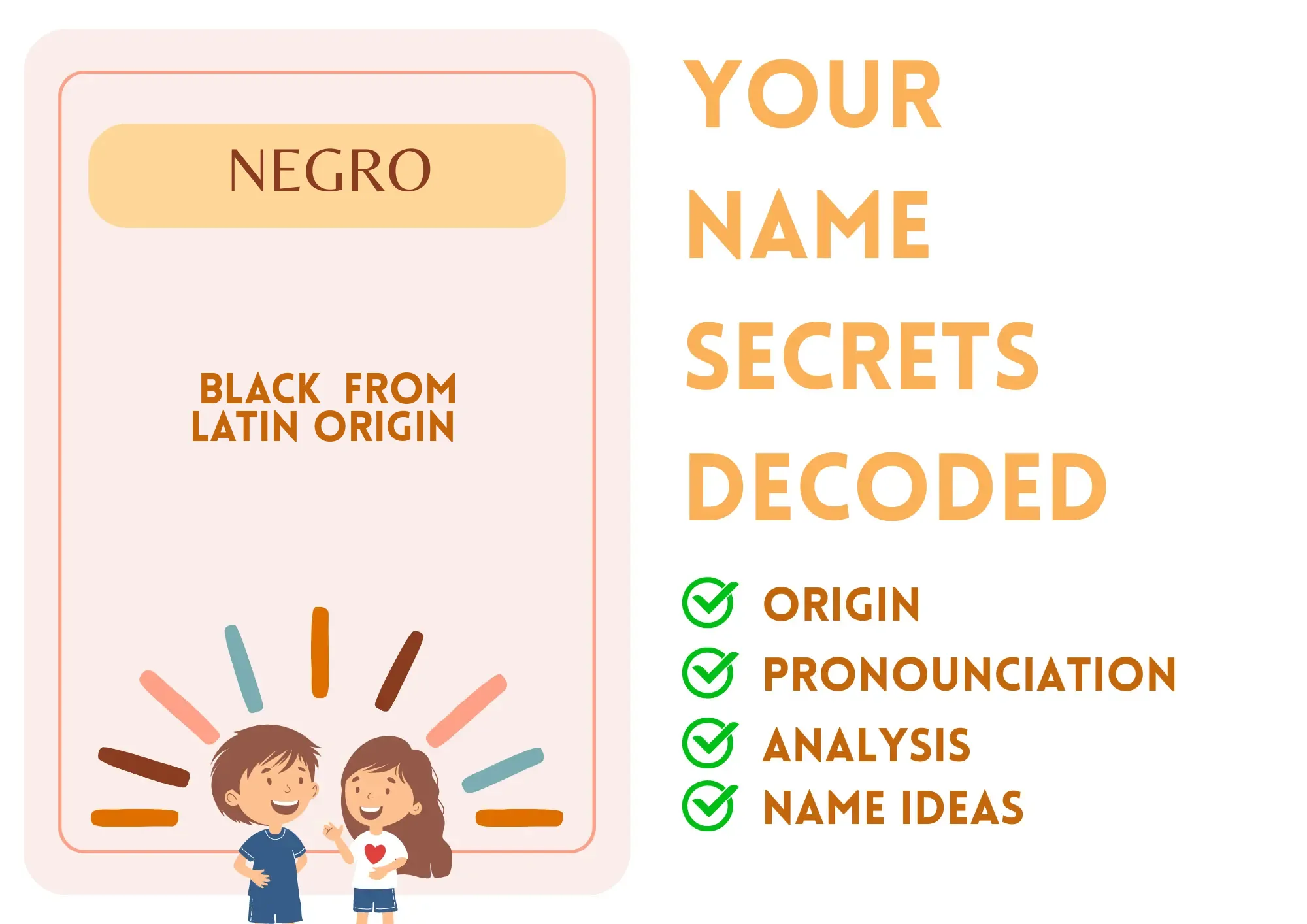
Negro
Negro is a word derived from the Latin word 'niger', meaning 'black.' Historically, it has been used to describe individuals of African descent, particularly in the United States, during periods of history where racial identifiers were more common. The term has fallen out of favor and is now considered outdated and potentially offensive. It is important to note that while once used in a neutral descriptive sense, modern context tends to view it negatively due to the racial connotations and the subsequent usage of derogatory language surrounding race.
The name is rarely chosen for babies today as a given name due to its historical and sociocultural implications. While it may have been traditionally masculine, the cultural context associated with it greatly affects its reception in contemporary society.
Basic Information
Gender: Unisex
Sounds Like: NEH-gro
Pronunciation Explanation: The first syllable sounds like 'NEH' and is pronounced with emphasis, while the second syllable is softer, sounding like 'gro'.
Summary and Meaning
Meaning: black (from Latin origin)
Origin: The name has Latin origins, specifically from the word 'niger', meaning 'black'.
Usage: The name does not have a clear gender association in contemporary usage.
Name Number (Chaldean)
Name Number (Pythagorean)
Popularity (Global Rank)
Overall: 18416
Girls: 18416
Most Popular in
Religious and Cultural Significance
Religion: Unknown
Background: The name does not have religious significance and is more of a historical and racial descriptor.
Cultural Significance: While historically significant, 'Negro' is now viewed negatively in many contexts, reflecting societal changes in the understanding of race and identity.
Historical Significance: The term was commonly used throughout the 19th and early 20th centuries in America but has since been replaced by terms considered more respectful and encompassing, such as African American.
Popular Culture
Literature and Mythology: The term 'Negro' appears in historical texts, literature, and speeches, often in the context of civil rights discussions or other historical references.
Movies and Television: It may be referenced in historical films or documentaries discussing race relations but is not commonly used in modern cinema due to its evolved context.
Feelings and Perceptions
Perception: Negro is generally perceived as an outdated and potentially offensive term. Many people associate it with racism and discrimination.
Positive Feelings: Some may view it as a historical term that represents a specific era or context of racial identity.
Negative Feelings: Most people associate the name with negative historical contexts and prefer more respectful identifiers.
Practical Considerations
Ease of Writing and Calling: The name is easy to write, consisting of six letters. However, its use is discouraged due to the cultural implications.
Common Typos and Misspellings: Negrao,Nengro,Negri,Nigro
Common Nicknames:
Negro Popularity
Negro Usage and Popularity By Country
| Country | Rank (Overall) |
|---|---|
| Argentina | 805 |
| Paraguay | 2096 |
| Bolivia | 2240 |
| Chile | 2264 |
| Ecuador | 2269 |
| Nicaragua | 2344 |
| El Salvador | 2599 |
| Montenegro | 2822 |
| Mexico | 2902 |
| Venezuela | 2952 |
Negro Usage and Popularity By City
| City | Rank (Overall) |
|---|---|
| Sao Paulo | 8264 |
| Salvador | 2695 |
| Turin | 975 |
| Madrid | 5742 |
| Mexico | 2567 |
| Chihuahua | 1625 |
| Caracas | 3652 |
| San Luis Potosà | 1427 |
| New York | 39655 |
| Lopez Mateos | 1797 |
Compatibility Analysis
Famous Persons Named Negro
Related Names
Similar Sounding Names:
Nico,Niga,Nega